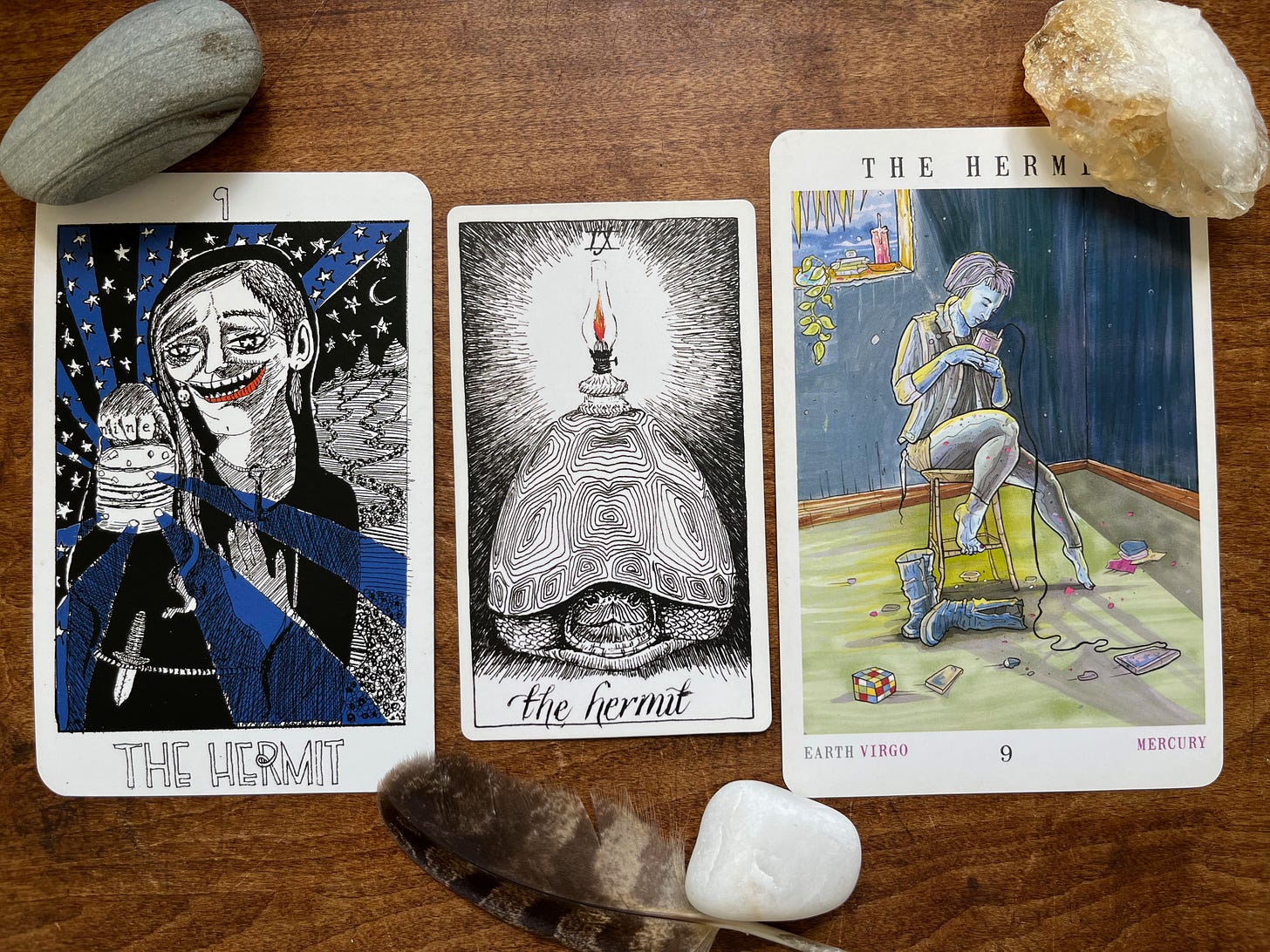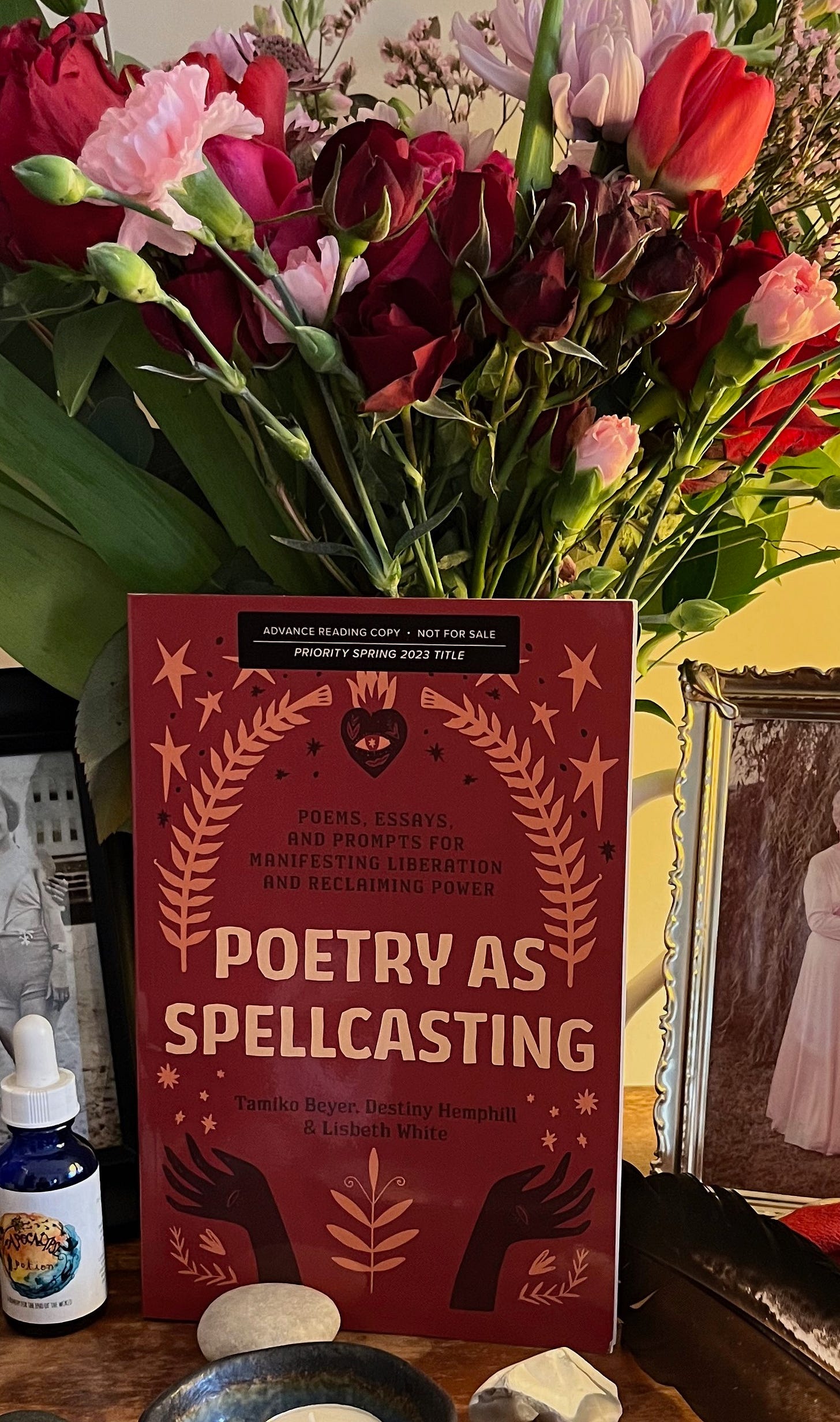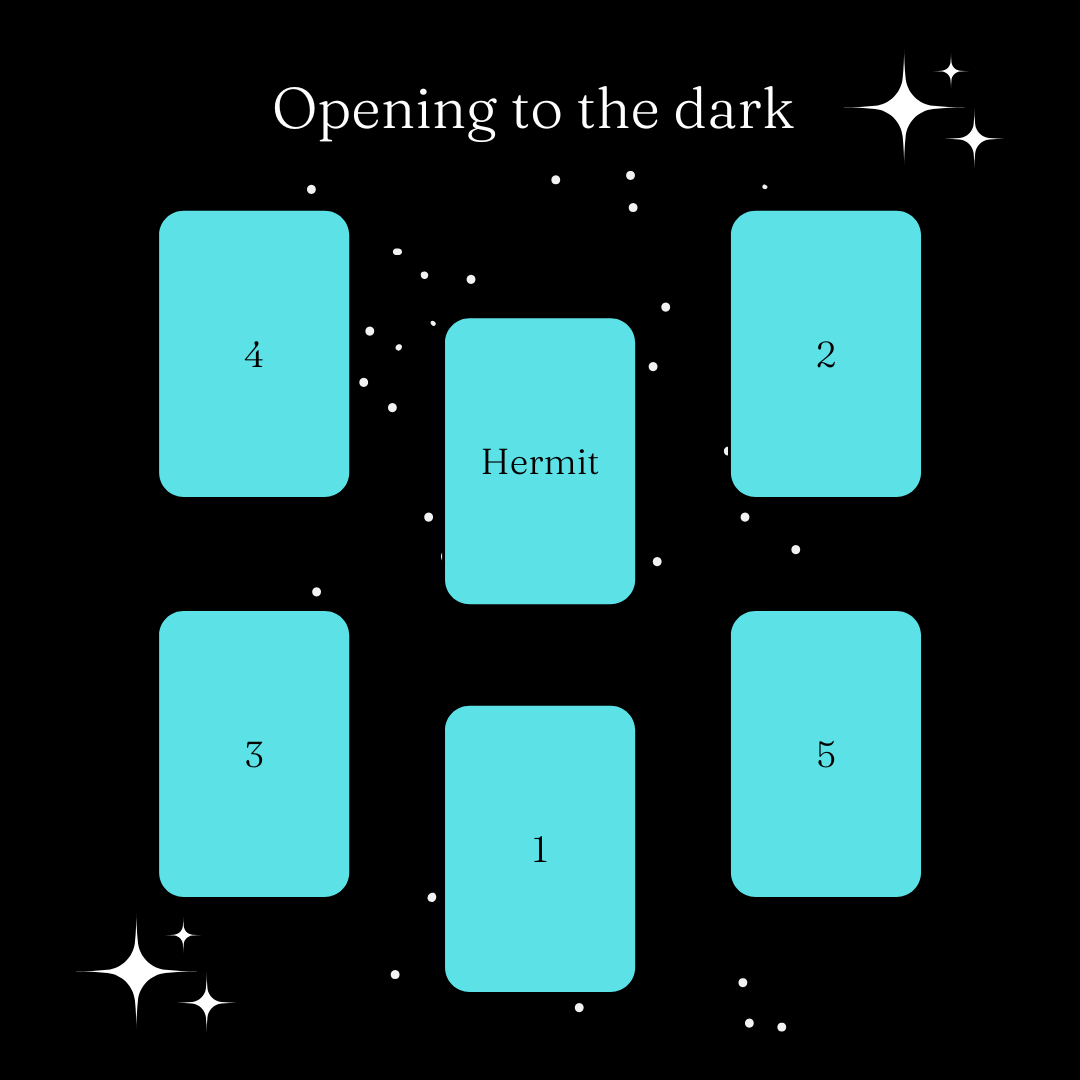“While I’m On This Journey, Hold My Hand”
Writing toward the end of this world with Destiny Hemphill

Story
I met Destiny Hemphill in 2019 over a bowl of noodles in Seattle’s International District. The next day, Destiny, Lisbeth White, Tatiana Figueroa Ramirez, and I were to present a panel we called “Poetry As Spellcasting.” As the four of us ordered dumplings and shared stories, we had no idea that in the coming years, Destiny, Lisbeth, and I would spend hundreds of hours together on video—dreaming, thinking, making agendas and spreadsheets, writing, editing, laughing, commiserating, strategizing, and doing spellwork—to turn that panel into a book.
But I did know, as that first dinner proceeded and as we spent time together over the conference weekend, that Destiny had a visionary spirit and brilliant mind. I knew I wanted to continue to be in community with her. When she told me about her MFA thesis, which would become motherworld: a devotional for the alter-life, I couldn’t wait to read it. She described it as a Black futurism project, an invocation of another world that might lie on the other side of the collapse of this world. At the time, I was a few years into my own exploratory thinking and writing about apocalypse as both a necessary end and a possible path to a different kind of future. I was excited to hear how Destiny was exploring these themes in the lineage of Black feminists and futurists.
Over the years, as I read some of the poems in the book, like this one featured at Split This Rock, I was dazzled by Destiny’s skill in making language sing, shout, invoke spirit, and birth possibility:
we’ve always already been molding & shaping
spinning & folding, birthing & sharing
can you feel it? in our breath & in our hands. between us, we’ve got
the motherworld, the whole motherworld in our breath & in our hands.
Now, as motherworld launches, I’m honored to feature a reflection from Destiny about her experience of writing this incredible book. I hope you find it meaningful, and that it inspires you to order a copy or two of motherworld.
While I’m On This Journey, Hold My Hand
In the tarot, the Hermit card is the ninth card of the Major Arcana, the suite of cards that delve into the larger collective (un)consciousness of what it means for a soul to inhabit the earthen vessel that we call a “body.” The Hermit walks with a head bowed as though in prayer. The Hermit walks in the dark. They walk alone, or so they think: it’s so dark that they might not see who else walks with them. That’s why they hold only a small lamplight to illuminate their path, just enough light to see their next step but no more than that. On this journey, the Hermit does not actually have to see to know. Despite what an ableist Western epistemological preoccupation might try to tell us—sight is not the only site of knowing. In fact, this site, this journey invites the Hermit to know differently. To sense breath, to feel the reverberating echoes of steps along their path, to startle at a touch grazing their fingers and wonder who is trying to hold their hand.
***
I began writing motherworld: a devotional for the alter-life in earnest when I moved to Columbia, South Carolina to begin my MFA program. I made my journey to South Carolina during the Total Eclipse in Leo in August 2017. Astrologically speaking, the eclipse fell in my ninth house of long-distance travels, moving, and higher education. The Hermit, as the ninth card of the Major Arcana, seemed to be the appropriate guide for my ninth house transit. Splintered and frayed from community organizing in 2016 (a 9-year in numerology), I came to South Carolina often with my head down in an attempt to watch my step. Sometimes with my head down because of the immense weight in my heart that concaved my shoulders and bowed my neck.
I often felt alone. And more than felt alone, often felt lonely. And more than felt, just was. And yet…What was coming out on the page oftentimes gently, insistently, and persistently—after crying myself to sleep or burning down candles or marveling at a red spider lily on my walk to campus or leaving white roses and lilies on crossroads—was a we-voice. Even when a speaker had an “i-voice” in a poem, so often—there was a you also explicitly invoked. Thus, there again appearing a we. Although I had some sense, I didn’t always know who i was or who you were or who we were.
Yet, there you were. There, we were. Present. Seeking a “place […] that sustains life like ours, sustains black life.”* There you were, reaching for my hand to hold on this journey. There we were, building a world-to-come with fragments of lush possibility lodged in the now/here. Remembering that the apocalypse was only the end of a world. And speculating that if this world did in fact end, if the colonial structures that upheld it collapsed, maybe we could usher in structures of care. There you and i and we were in the spell and as the spell, in the prayer and as the prayer, in the ritual and as the ritual, in the poems and as the poems. In and as and of some other world. Another world. Motherworld.
***
Now on the other side of having written motherworld, more and more, there is so much I do not know. Still don’t know what exactly lies on the other side of this portal, what lies outside of this alchemizing cauldron, nor to what new devotions this potion will lead me. But this is what I do know: I know that I am distilling my commitments to community more clearly. I know that I am shedding. I know that I am changing shapes out of something and into the shape of something else. And I know that whatever tenuous knowledge I have of who I am is granted to me by knowing whose I am: I am my mama’s, my daddy’s, my siblings’, my kindred’s, my ancestors’, this earth’s. I am not this world’s. This world is not my home. I am all that I have chosen and that has also graciously chosen me.
In my solitude, I have often thought that I was walking alone—but only, again, because it was so dark and my eyes were not always able to adjust and I could not always see who and what moved around me, with me. Yet, if I was still enough (still, not running idle in exhaustion), I could hear the echoes of steps, feel the heat of breath of my kindred—my dead and my living. I think this (un)knowing has been the pulse behind my impulse of writing in the we voice. Writing with a we and towards a we. Writing towards the end of this world.
* this quote comes from “dispatches from the now/here” in motherworld: a devotional for the alter-life by Destiny Hemphill.
Starlight
A prompt
Opening in the dark
This prompt may be particularly useful to do when you feel alone and/or lonely, when you are working toward a completion of a project or phase of life, and/or if you are looking for some guidance in any kind of transformative work or project, especially those focused on dismantling harmful systems and building new worlds.
Take out the Hermit card and any/all of the 9s in the Minor Arcana that are speaking to you. If you don’t have a deck, you can look at the images below, or do an image search of the Hermit card.

Meditate on the imagery, colors, textures, emotions, and associations that arise for you. Try not to lean too heavily on what you already know about these cards; let them speak to you in the moment. Write down any images, words, phrases, instructions, or offerings that come to you.
Keep the cards that you’ve pulled out (Hermit and any/all of the 9s). Draw five new cards as you ask the following questions, and arrange them in a circle around the Hermit and 9(s):
What other ways of knowing are available to me in the darkness?
How might I best tap into these other ways of knowing?
Who is trying to hold my hand?
What support is available for me to rest and be still?
What is waiting for me on the other side of this moment?
If you don’t have a deck, use the questions above as journaling prompts. Try to free write—don’t stop and think, just write and see what comes through. If you have an oracle deck, you can also pull cards for each of the questions.
Stargaze
What I’m reading and listening to
Two essays from Emergence Magazine reflect the themes offered here this month and last month: Myrtle’s Medicine by Kinitra Brooks on rootwork and Black women’s cosmologies and epistemic agency, and Prophecies of Possibility by Jamie Figueroa on Indigenous women’s reflection on intuition, sovereignty, and power.
Embracing rage to “fuel a transformation toward awakening,” by Zenju Earthlyn Manuel.
Practicing Inclusion in the Time of COVID. I’ve been wondering with confusion: Is the pandemic over? What about Long COVID? What about immunocompromised people and those with disabilities and chronic illnesses? Even as the federal government and too many organizations are operating as if the pandemic is over, this guide and accompanying links provide clear guidance to anyone who is planning an event, large or small, on how to be inclusive of everyone in this time when the pandemic is not, in fact, over.
Starshine
Announcements from the Starlight & Strategy community
Bianca, by Eugenia Leigh is launching on March 15. This powerful collection of poetry delves with raw honesty into deep trauma, mental health, survival, and commitment to life and love. It’s devastating, and it’s poetic storytelling at its finest. I highly recommend getting your hands on a copy!
Advance reading copies are available for Poetry As Spellcasting: Poems, Essays, and Prompts for Manifesting Liberation and Reclaiming Power, edited by me, Destiny Hemphill, and Lisbeth White. If you are a reviewer, podcaster, witchy influencer, etc. and would like a copy, let me know! And everyone can pre-order a copy here or through your favorite independent bookstore.

I’m excited to check out the virtual opera Fractured Mosaics, which asks what it means to be Asian American, from White Snakes Project. Live online March 30, April 1, and April 3.
Do you have an event, a book, an album, a gallery showing, a theater production, an action, a rally, a retreat, a podcast or other artistic/spiritual/activist announcement you’d like to share with this community? Send it my way!
Thank you for reading to the end! I’ll be back in your inbox at the start of National Poetry Month, on April 6, with reflections and prompts on poetry as prayer. Until then, I send you many blessings as you walk in the dark and in the light.




